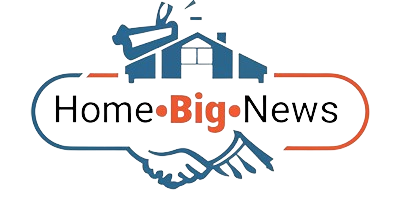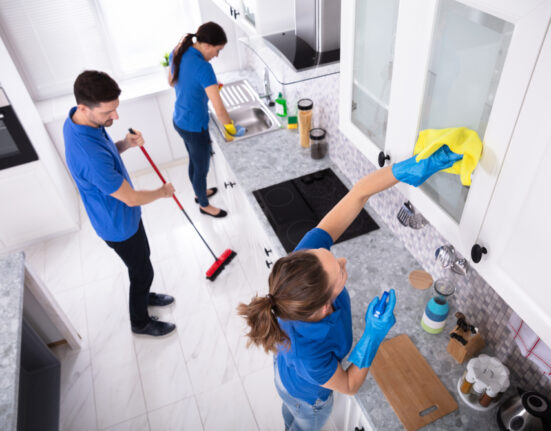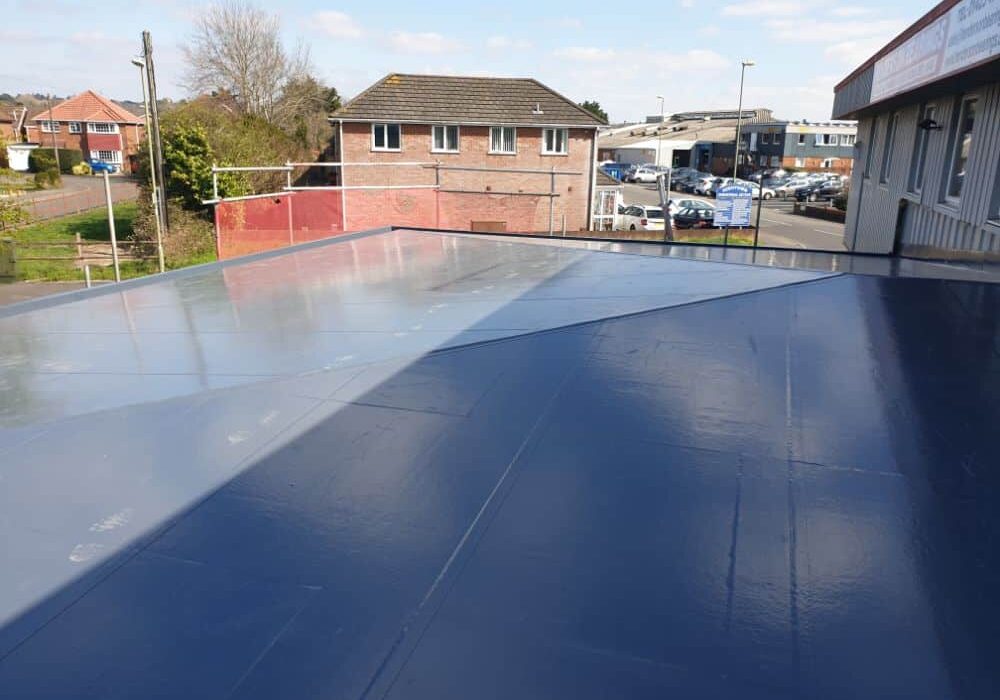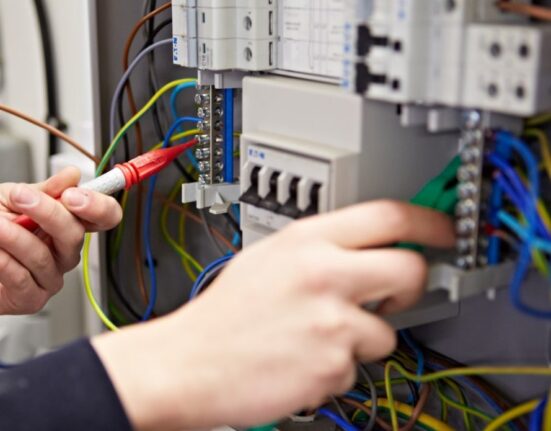The Overlooked Importance of Flat Roof Maintenance
They were thrilled when John and Lisa bought their first home, a charming modern flat-roofed house in a suburban neighborhood. The house had everything they wanted—large windows, an open floor plan, and a beautiful garden. But like many new homeowners, they were unaware of the unique challenges of a flat roof. It wasn’t until their first rainy season that they noticed water pooling in certain areas and slow drainage. What started as a minor inconvenience soon turned into a costly repair job. Then, John realized that maintaining a flat roof requires more attention than he had ever imagined.
While architecturally stunning, flat roofs demand regular maintenance to ensure their longevity. Issues like leaks, water damage, and structural weakening can quickly escalate without proper care. This article will guide you through the essential steps for cleaning flat roofs, ensuring your home remains safe and secure for years.
Understanding the Importance of Cleaning Flat Roofs
Unlike their pitched counterparts, flat roofs have minimal slope, making them more prone to water accumulation, debris buildup, and algae growth. Regular cleaning is not just about aesthetics—it’s crucial for preventing long-term damage and ensuring the roof’s integrity.
Why Regular Cleaning Matters
- Prevents Water Accumulation: Flat roofs do not naturally shed water as quickly as sloped roofs. Without regular cleaning, leaves, dirt, and debris can clog drainage systems, leading to standing water, which increases the risk of leaks and structural damage.
- Extends Roof Lifespan: According to the National Roofing Contractors Association (NRCA), regular maintenance can extend the life of a flat roof by up to 25%. Materials can deteriorate faster without proper cleaning, leading to costly repairs or incomplete roof replacement.
- Reduces the Risk of Structural Damage: Water that remains on a flat roof can seep into the underlying layers, causing rot, mold, and weakening of the structural components. Regular cleaning helps prevent these issues, maintaining the roof’s strength and stability.
- Improves Energy Efficiency: A clean roof reflects sunlight more effectively, reducing heat absorption and helping to maintain cooler indoor temperatures. This can lead to significant savings on energy bills, especially in warmer climates.
Best Practices for Cleaning Flat Roofs
Cleaning a flat roof requires a systematic approach to ensure safety and effectiveness. Here are the essential steps and tips to follow:
- Safety First
Before starting any cleaning project:
- Prioritize safety.
- Always wear non-slip shoes, use a sturdy ladder, and never attempt to clean the roof during wet or windy conditions.
- If possible, use a safety harness to prevent falls.
- Remove Debris
They remove loose debris, such as leaves, branches, and dirt. A leaf blower or broom is effective for this task. Be gentle to avoid damaging the roofing material. Pay special attention to areas around drains and gutters where debris accumulates.
- Check for Damage
While clearing debris, inspect the roof for signs of damage, including cracks, blisters, or punctures. Address these issues before proceeding with the cleaning to prevent further damage.
- Clean the Surface
For a thorough clean, use a mild detergent mixed with water and a soft-bristle brush or mop to scrub the surface. Avoid harsh chemicals that could damage the roofing material. Start from the highest point and work your way down, ensuring that all dirt and algae are removed.
- Rinse Thoroughly
After scrubbing:
- Rinse the roof with a garden hose.
- Ensure that all soap residue is washed away, which can attract dirt and debris if left on the surface.
- Avoid using a pressure washer, as the high pressure can damage the roofing material and force water into the seams.
- Clear Gutters and Drains
Blocked gutters and drains are common causes of water pooling on flat roofs. Clean these areas regularly to ensure proper drainage. Installing gutter guards can reduce the frequency of this task by preventing debris from entering the drainage system.
- Inspect and Maintain
After cleaning, inspect the roof again to ensure no lingering issues. Regular maintenance, such as applying a protective coating or repairing minor damage, can prevent more significant problems.
- Schedule Regular Cleanings
According to a 2023 report by the American Roofing Association, flat roofs should be cleaned at least twice a year—once in the spring to remove winter debris and once in the fall to prepare for winter. Regular cleaning not only prolongs the roof’s life but also helps identify potential issues before they become serious problems.
The Cost of Neglecting Flat Roof Cleaning
Neglecting to clean a flat roof can lead to significant financial and structural consequences. Here are some statistics that highlight the importance of regular maintenance:
- Increased Repair Costs: A study by Roofing Contractor Magazine found that homeowners who neglect flat roof maintenance spend an average of 30% more on repairs over the roof’s lifetime than those who regularly maintain their roofs.
- Decreased Property Value: Homes with poorly maintained roofs can decrease property value by up to 10%, according to the National Association of Realtors. Potential buyers view a neglected roof as a significant liability, leading to lower offers or extended time on the market.
- Higher Energy Bills: Dirty roofs absorb more heat, increasing cooling costs. The U.S. Department of Energy estimates that clean roofs can reduce energy consumption by up to 15% during summer.
Eco-friendly Roof Cleaning Solutions
Several eco-friendly roof cleaning solutions are available for environmentally conscious homeowners. These products are designed to clean effectively without harming the environment or the roofing materials.
Green Cleaning Products
- Oxygen-based Cleaners: These cleaners use the power of oxygen to break down dirt and stains. They are biodegradable and safe for the environment.
- Vinegar Solutions: A mixture of vinegar and water is an effective natural cleaner that can remove algae and mildew without damaging the roof.
- Citrus-based Cleaners: These cleaners are derived from citrus oils and effectively cut through grease and grime without harsh chemicals.
Benefits of Eco-friendly Cleaning
- Protects Roofing Materials: Harsh chemicals can degrade roofing materials over time. Eco-friendly cleaners are gentler, helping to preserve the roof’s integrity.
- Reduces Environmental Impact: Homeowners can minimize their environmental footprint and contribute to a healthier planet by choosing biodegradable products.
- Safe for Pets and Plants: Eco-friendly cleaners are typically non-toxic, making them safe to use around pets and garden areas.
Conclusion: The Key to a Long-lasting Flat Roof
Regular cleaning and maintenance of flat roofs are essential for preventing costly repairs, extending the roof’s lifespan, and maintaining the overall value of your property. By following the best practices outlined in this article, homeowners can ensure their flat roofs remain in top condition and provide long-lasting protection against the elements.
Remember, a well-maintained roof protects your home and contributes to its energy efficiency and aesthetic appeal. Whether you choose to do it yourself or hire a professional, keeping your flat roof clean is an investment in your home’s future.














